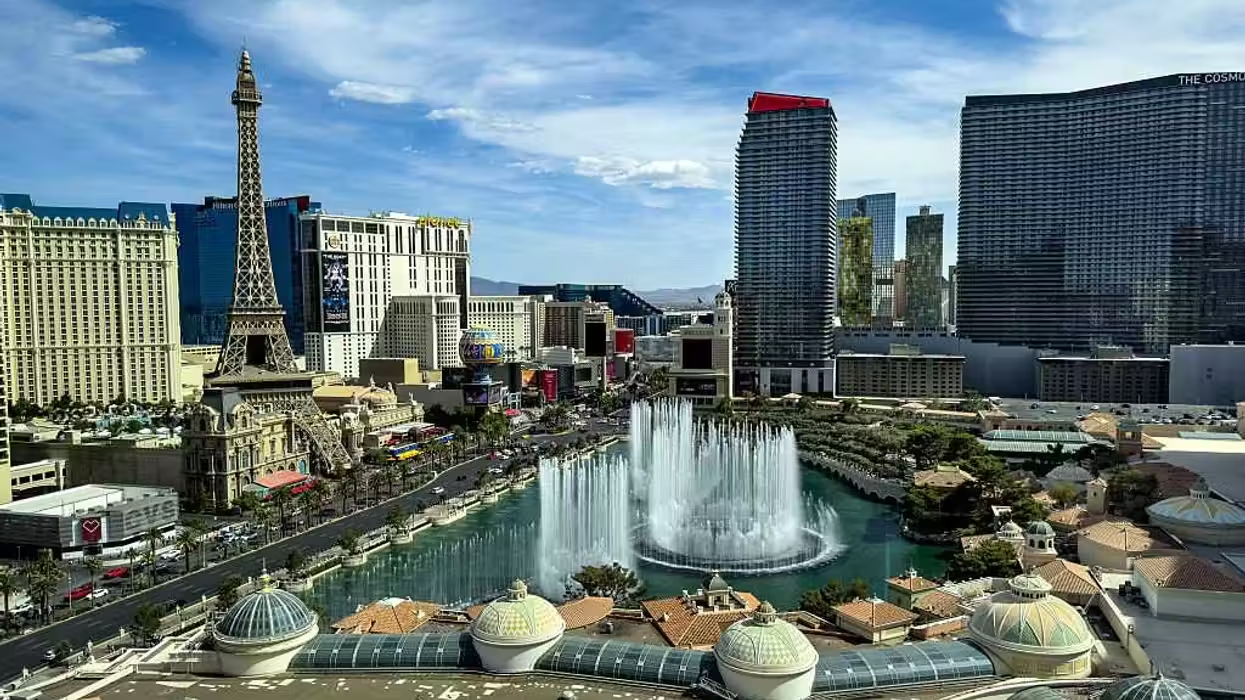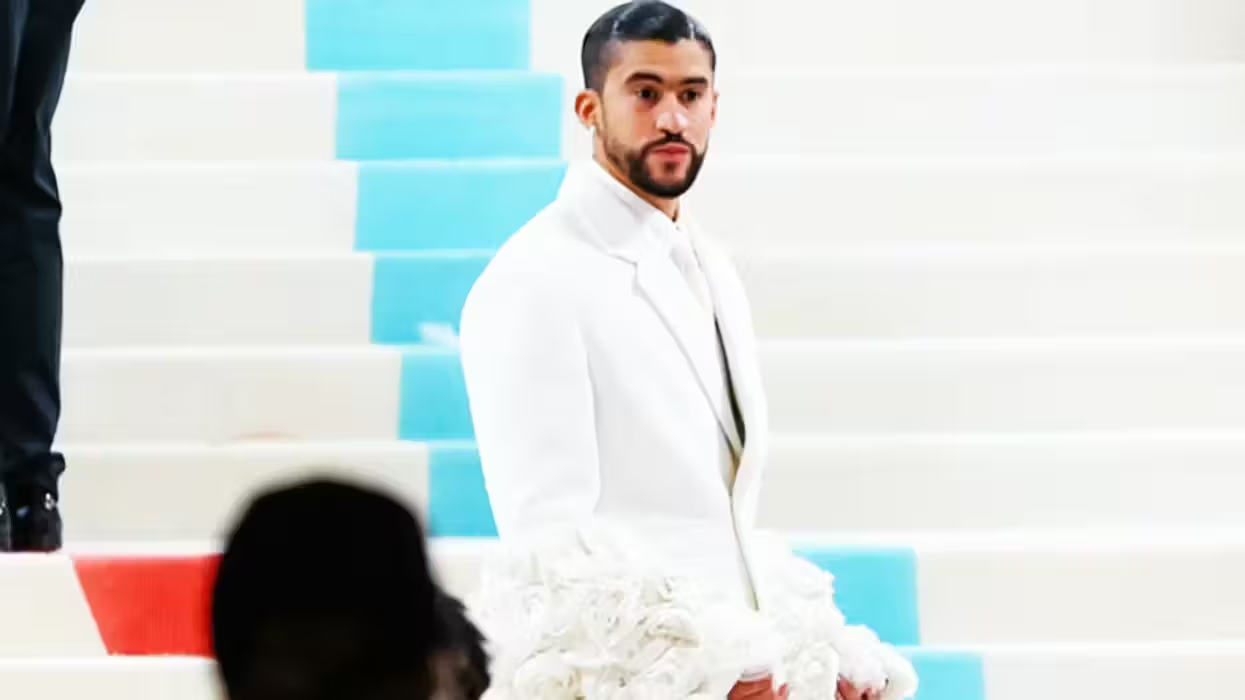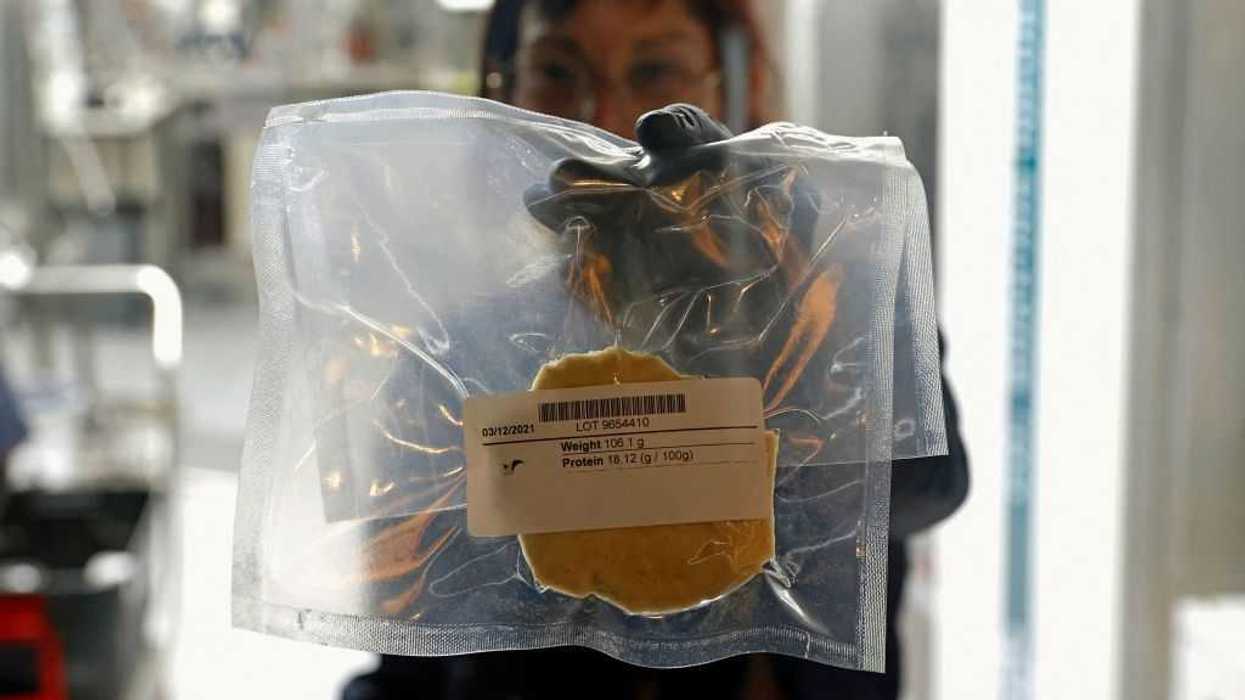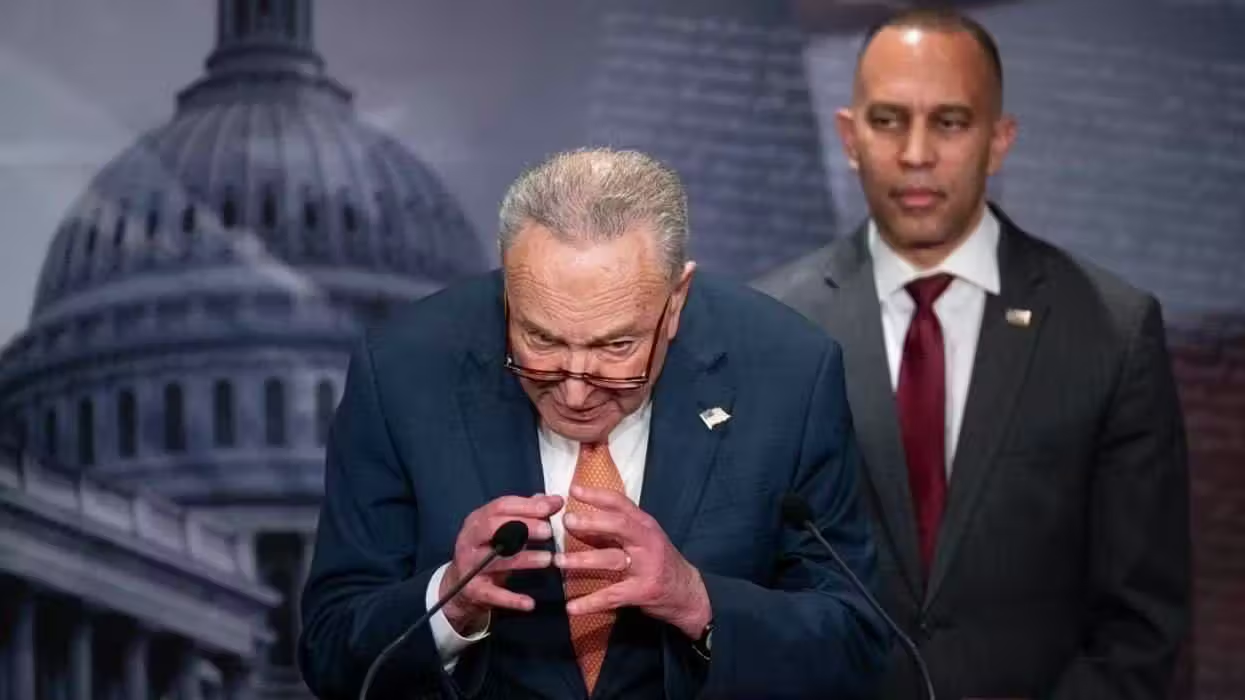 BOCA RATON, FL - OCTOBER 22: U.S. President Barack Obama (R) debates with Republican presidential candidate Mitt Romney at the Keith C. and Elaine Johnson Wold Performing Arts Center at Lynn University on October 22, 2012 in Boca Raton, Florida. The focus for the final presidential debate before Election Day on November 6 is foreign policy. (Credit: Getty Images)
BOCA RATON, FL - OCTOBER 22: U.S. President Barack Obama (R) debates with Republican presidential candidate Mitt Romney at the Keith C. and Elaine Johnson Wold Performing Arts Center at Lynn University on October 22, 2012 in Boca Raton, Florida. The focus for the final presidential debate before Election Day on November 6 is foreign policy. (Credit: Getty Images)
Republican presidential candidate Mitt Romney blasted President Barack Obama's foreign policy during the final presidential debate on Monday, saying the president has failed to come up with a coherent policy to grapple with the "rising tide of chaos" in the Middle East in the wake of the Arab Spring.
President Obama was just as critical of Romney's proposed policies, telling his rival "every time you've offered an opinion, you've been wrong." The Republican coolly responded, "Attacking me is not an agenda" for dealing with a dangerous world.
With the two men seated at a semi-circular table, the debate produced little of the finger-pointing and even less of the interrupting that marked their extremely contentious debate last week. However, there was more agreement that one might think on Libya, Syria, Russia and other national security issues in a 90-minute encounter at Lynn University.
The first question was about Libya, a topic many thought would dominate the debate. However, the discussion quickly moved on to other topics.
Romney did not aggressively go after the Obama administration for its inconsistent and evolving story on the terrorist attack in Benghazi, Libya, which left four Americans dead, including U.S. Ambassador Chris Stevens and two former Navy SEALs.
Instead, Romney focused on the fact that despite early hopes, the ouster of despotic regimes in Egypt, Libya and elsewhere over the past year have resulted in the radicalization of many areas in the Middle East. He added ominously that an al-Qaeda-like group has taken over northern Mali. He also mentioned Iran being "four years closer to a nuclear weapon."
Anticipating one of Obama's most frequent campaign talking points, Romney beat Obama to the punch on Osama bin Laden, crediting the president for killing the al-Qaeda leader but said "we can't kill our way out of this. ... We must have a comprehensive strategy" for dealing with Islamic extremism in the Middle East.
As he has repeatedly asserted on the campaign trail and in previous debates, Obama said he had ended the war in Iraq, was on a path to end the U.S. combat role in Afghanistan and has vowed to bring justice to the attackers of the U.S. Consulate in Benghazi last month.
He also jabbed at Romney's having said during the campaign that Russia is the United States' No. 1 geopolitical foe.
"Governor, when it comes to our foreign policy you seem to want the policies of the 1980s, just like you want to import the social policies of the 1950s and the economic policies in the 1920s," the president quipped.
On the issue of Israel, Obama vowed to stand with Israel if they are attacked. He also said Iran "will not get a nuclear weapon" if he is re-elected. The president bragged about implementing some of the strictest sanctions on the nation in history.
"It is crippling their economy," Obama said of Iran. "A nuclear Iran is a threat to our national security and it is a threat to Israel's national security."
Obama even admitted that Iran has admitted to wanting to wipe Israel "off the map." He did warn against taking "premature" action against Iran, calling military action a "last resort."
Romney mostly agreed with Obama on preventing Iran from acquiring a nuclear weapon and the importance of remaining a loyal ally to the Jewish nation. However, he said he would implement even tougher sanctions on Iran.
"If I'm president of the United States -- when I'm president of the United States -- we will stand by Israel. And if Israel is attacked, we have their back," Romney said.
Romney also noted that Obama didn't make a stop in Israel, America's closest ally, when he toured the region early in his first term.”You skipped Israel, our closest friend in the region," he said.
The Republican also said he would indict Iran's President Mahmoud Ahmadinejad for "genocide incitation" at the United Nations. Because of Obama's lack of leadership, Iran is "four years closer to acquiring a nuclear weapon."
 US President Barack Obama and Republican Presidential candidate Mitt Romney participate in the third and final presidential debate at Lynn University in Boca Raton, Florida, October 22, 2012. The showdown focusing on foreign policy is being held in the crucial toss-up state of Florida just 15 days before the election and promises to be among the most watched 90 minutes of the entire 2012 campaign. (Credit: AFP/Getty Images)
US President Barack Obama and Republican Presidential candidate Mitt Romney participate in the third and final presidential debate at Lynn University in Boca Raton, Florida, October 22, 2012. The showdown focusing on foreign policy is being held in the crucial toss-up state of Florida just 15 days before the election and promises to be among the most watched 90 minutes of the entire 2012 campaign. (Credit: AFP/Getty Images)
 US President Barack Obama greets Republican presidential candidate Mitt Romney as the two contenders arrive on stage for the third and final presidential debate October 22, 2012 at Lynn University in Boca Raton, Florida. (Credit: AFP/Getty Images)
US President Barack Obama greets Republican presidential candidate Mitt Romney as the two contenders arrive on stage for the third and final presidential debate October 22, 2012 at Lynn University in Boca Raton, Florida. (Credit: AFP/Getty Images)
 BOCA RATON, FL - OCTOBER 22: Republican presidential candidate Mitt Romney speaks during a debate with U.S. President Barack Obama at the Keith C. and Elaine Johnson Wold Performing Arts Center at Lynn University on October 22, 2012 in Boca Raton, Florida. The focus for the final presidential debate before Election Day on November 6 is foreign policy. (Credit: Getty Images)
BOCA RATON, FL - OCTOBER 22: Republican presidential candidate Mitt Romney speaks during a debate with U.S. President Barack Obama at the Keith C. and Elaine Johnson Wold Performing Arts Center at Lynn University on October 22, 2012 in Boca Raton, Florida. The focus for the final presidential debate before Election Day on November 6 is foreign policy. (Credit: Getty Images)
 US President Barack Obama and Republican presidential candidate Mitt Romney participate in the third and final presidential debate at Lynn University in Boca Raton, Florida, on October 22, 2012. The showdown focusing on foreign policy is being held in the critical toss-up state of Florida just 15 days before the election and promises to be among the most watched 90 minutes of the entire 2012 campaign. (Credit: AFP/Getty Images)
US President Barack Obama and Republican presidential candidate Mitt Romney participate in the third and final presidential debate at Lynn University in Boca Raton, Florida, on October 22, 2012. The showdown focusing on foreign policy is being held in the critical toss-up state of Florida just 15 days before the election and promises to be among the most watched 90 minutes of the entire 2012 campaign. (Credit: AFP/Getty Images)
Both also said they oppose direct U.S. military involvement in the brutal attempt to topple Syrian President Bashir Assad.
After a particularly long answer from President Obama on his foreign policy in Afghanistan, Romney asked moderator Bob Schieffer of CBS News if he could respond.
"Bob, you can't have the president just lay out a whole series of items without letting me…" Romney began.
Schieffer interrupted: "With respect sir, you have laid out quite a program..."
At that point, Obama had enjoyed more than three minutes of speaking time than Romney. The Republican did not capitalize on the discrepancy, however, instead merely saying "that's probably true."
Despite Obama's constant claims that his administration has al-Qaeda "on the run," Romney said that wasn't the case.
"We are going to have to do more than just going after leaders and killing bad guys, as important as that is," Romney said. He said the United States needs real leadership to turn the Muslim word away from terrorism and extremism.
On China, the final debate topic, Romney said he would label the country a "currency manipulator" on day one of his term as president while Obama insisted that the country "play by the same set of rules" without really laying out a detailed plan to make that happen.
Obama accused Romney of investing in Chinese companies and said his rival would like to have the U.S. buying cars from China instead of selling cars to China.
In closing, the president promised that Romney would bring the same policies that sent the U.S. head-first into two prolonged wars, record deficits and an economic crisis.
"I'm excited about our prospects as a nation...we have an opportunity to have real leadership," Romney countered.
The president's path means 20 million people out of work, a struggling economy and a soon-to-be $20 trillion national debt, he explained.
The two men are locked in a close race in national opinion polls. The final debate behind them, both men intend to embark on a final two-week whirlwind of campaigning. The president is slated to speak in six states during a two-day trip that begins Wednesday and includes a night aboard Air force One as it flies from Las Vegas to Tampa. Romney intends to visit two or three states a day.
Watch some of the highlights from the final presidential debate of 2012:
The Associated Press contributed to this report.

 BOCA RATON, FL - OCTOBER 22: U.S. President Barack Obama (R) debates with Republican presidential candidate Mitt Romney at the Keith C. and Elaine Johnson Wold Performing Arts Center at Lynn University on October 22, 2012 in Boca Raton, Florida. The focus for the final presidential debate before Election Day on November 6 is foreign policy. (Credit: Getty Images)
BOCA RATON, FL - OCTOBER 22: U.S. President Barack Obama (R) debates with Republican presidential candidate Mitt Romney at the Keith C. and Elaine Johnson Wold Performing Arts Center at Lynn University on October 22, 2012 in Boca Raton, Florida. The focus for the final presidential debate before Election Day on November 6 is foreign policy. (Credit: Getty Images)






